We have an external Scientific Advisory Board (SAB) that evaluates our scientific production and advises on the research activity and strategies of the Institute for Neuroscience.
This is the current composition of the board:
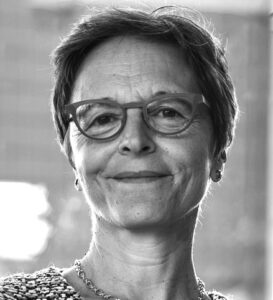 Prof. Carmen Sandi (Chair) is a Full Professor and Head of the Laboratory of Behavioural Genetics at the Brain Mind Institute (EFPL, Switzerland). She was Director of the Brain Mind Institute from 2012 to 2019. She is also founder and co-president of the Swiss Stress Network and co-director of the Swiss Center for Competence in Research Synapsy. From 2010-2011, she was President of the European Brain and Behaviour Society and she became president of the Federation of European Neuroscience Societies (FENS) for the 2018–2020 term. Her work focuses on the neurobiological mechanisms whereby stress alters the brain in the context of cognition and social behaviors, with a current focus on the contribution of brain mitochondria and metabolism. Her lab adopts an integrative research program in rodents and humans that spans from a whole range of neurobiological approaches to the use of neuroimaging and virtual reality. She was a Visiting Professor at the Chinese Academy of Sciences (1999), and the Rockefeller University NY (2016), and recipient of the Behavioral Brain Research Prize (2014) and Ron de Kloet Award (2018).
Prof. Carmen Sandi (Chair) is a Full Professor and Head of the Laboratory of Behavioural Genetics at the Brain Mind Institute (EFPL, Switzerland). She was Director of the Brain Mind Institute from 2012 to 2019. She is also founder and co-president of the Swiss Stress Network and co-director of the Swiss Center for Competence in Research Synapsy. From 2010-2011, she was President of the European Brain and Behaviour Society and she became president of the Federation of European Neuroscience Societies (FENS) for the 2018–2020 term. Her work focuses on the neurobiological mechanisms whereby stress alters the brain in the context of cognition and social behaviors, with a current focus on the contribution of brain mitochondria and metabolism. Her lab adopts an integrative research program in rodents and humans that spans from a whole range of neurobiological approaches to the use of neuroimaging and virtual reality. She was a Visiting Professor at the Chinese Academy of Sciences (1999), and the Rockefeller University NY (2016), and recipient of the Behavioral Brain Research Prize (2014) and Ron de Kloet Award (2018).
More information about: https://www.epfl.ch/labs/lgc/
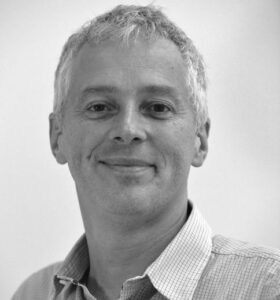
Prof. Alain Chédotal is Directeur de Recherche INSERM (DRCE), Coordinator of the Department of Development, and Group Leader at the Vision Institute. He was previously at the at the Salpêtrière Hospital (Sorbonne University).
His work focuses on the role of axon guidance molecules in the regulation of cell-cell interactions during normal development and in pathologies, and the function and evolution of commissural connections in the vertebrate central nervous system.
He has been a member of EMBO since 2019, a member of the Academia Europaea since 2016, and a member of the French Academy of Sciences since 2017. He received the Inserm Research Prize and the Remedios Caro Almela Award for Developmental Neurobiology in 2017.
More information about: https://www.institut-vision.org/en/development-evolution-and-function-on-commissural-systems.html

Prof. Fiona Doetsch is Professor of Molecular Stem Cell Biology and Research Group Leader at the Biozentrum of the University of Basel since 2014. She obtained her PhD in Neurobiology from the Rockefeller University in New York, was a junior fellow at the Harvard University Society of Fellows, and an assistant professor and then associate professor at Columbia University, USA. Her group investigates stem cells populations in the adult mammalian brain, as well as how physiological conditions modulate the maturation and behaviour of neural stem cells. By studying the biology of adult neural stem cells and their interactions with their environment in vivo, fundamental data can be obtained for their stimulation and use in brain repair, thus contributing to the treatment of different brain pathologies. She was elected EMBO member in 2020.
More information: https://www.biozentrum.unibas.ch/about/administration/administration-a-z/overview/unit/research-group-fiona-doetsch
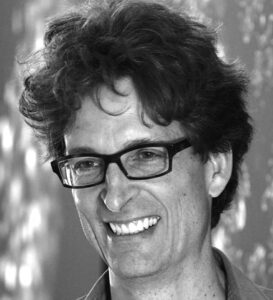
Prof. Cornelius Gross is the Interim Head of Unit and Senior Scientist at the Epigenetics & Neurobiology Unit, EMBL Rome. He was previously at the Developmental Biology Unit EMBL Heidelberg, Columbia University, NY, Yale University, and California University Berkeley. His research aims to understand the neural circuit mechanisms controlling instinctive behaviors with a special focus on fear and anxiety. He has also carried out research into the developmental origins of behavioral traits and has worked extensively on the role of microglia in shaping the developing brain. The goal of his research is to form novel hypotheses about how human instinctive behavior is controlled, which could form the basis for clinical research to develop improved diagnostic and therapeutic tools for mental illness.
More information about: https://www.embl.org/groups/gross/
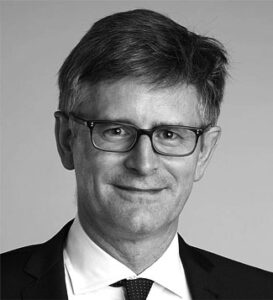
Prof. Michael Häusser is a Professor of Neuroscience and Wellcome Principal Research Fellow, based at the Wolfson Institute for Biomedical Research at University College London (UCL). He is interested in understanding the cellular basis of neural computation in the mammalian brain. Specifically, his group is investigating how the integrative properties of neuronal dendrites and the anatomical and functional connectivity of neural circuits contribute to the coding and processing of information in the intact brain. He aims to link different levels of brain function, in order to reveal how activity in single neurons and neural circuits encodes defined behaviors and, importantly, what kinds of changes take place within these circuits during learning. He was also elected Fellow of the Academy of Medical Sciences (2012), and Fellow of the Royal Society (2015).
More information about: https://www.ucl.ac.uk/wolfson-institute-biomedical-research/circuit-neuroscience/professor-michael-hausser
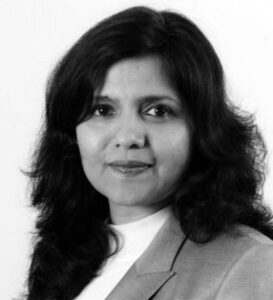
Prof. Rohini Kuner is a Professor of Pharmacology & Toxicology, and Director of the Department of Molecular Pharmacology at the Institute of Pharmacology of the Medical Faculty Heidelberg. Her scientific interest aims at understanding molecular mechanisms underlying chronic pain resulting from long-lasting inflammation or cancer. A major focus is laid on addressing signaling mechanisms that underlie activity-dependent changes in primary sensory neurons transmitting pain (nociceptors) and their synapses in the spinal dorsal horn. Her current work spans molecular, genetic, behavioral, electrophysiological, and imaging approaches in vitro as well as in vivo in rodent models of pathological pain. She has received the Chica and Heinz Schaller Foundation Research Award (2006), and the Feldberg Foundation Prize (2018), among other research prizes. Since 2019, she is a member of the German Academy of Sciences Leopoldina.
More information about: https://www.uni-heidelberg.de/izn/researchgroups/kuner-r/

 Español
Español